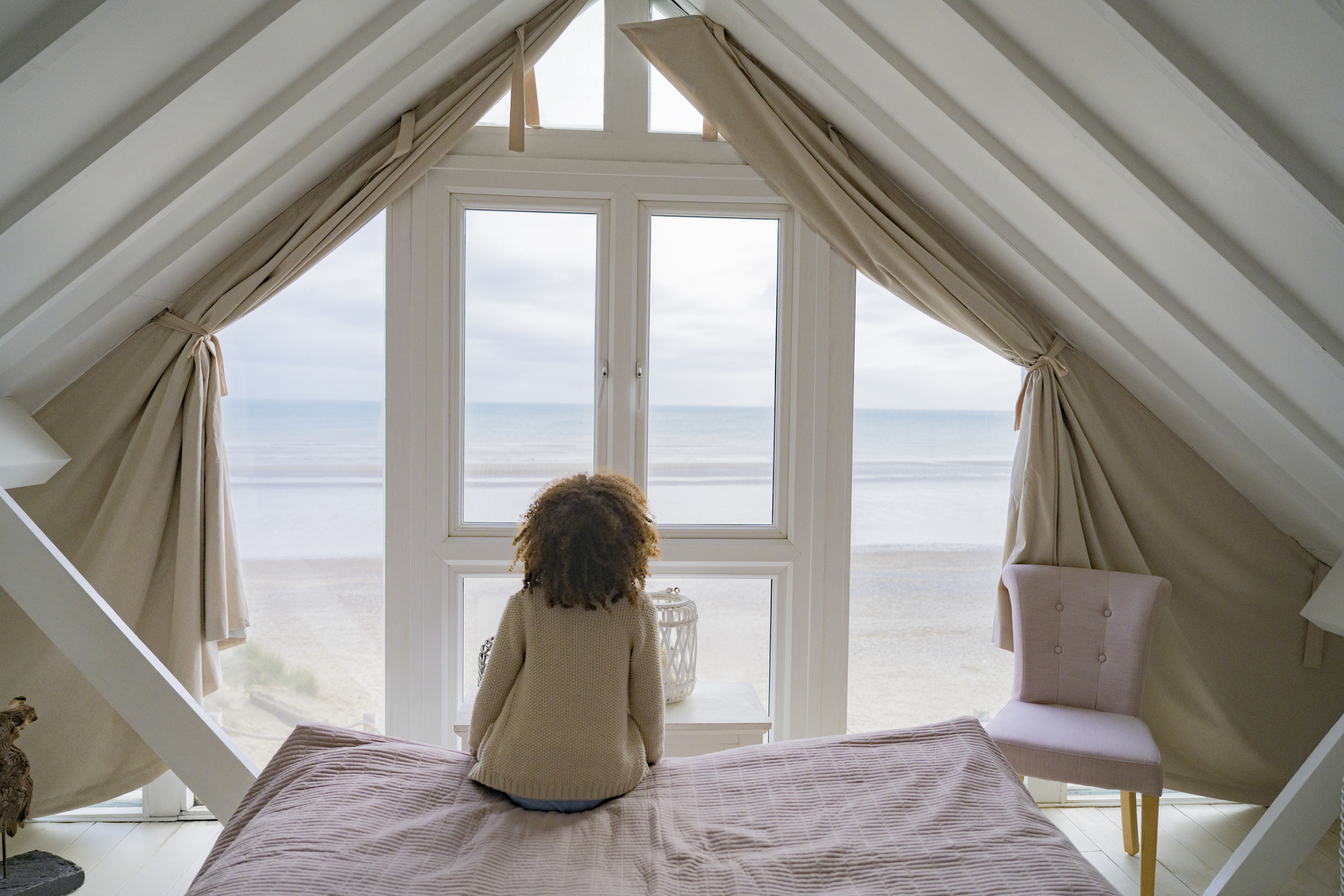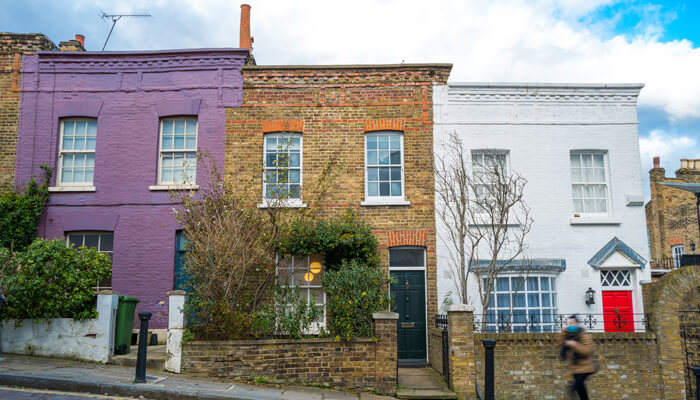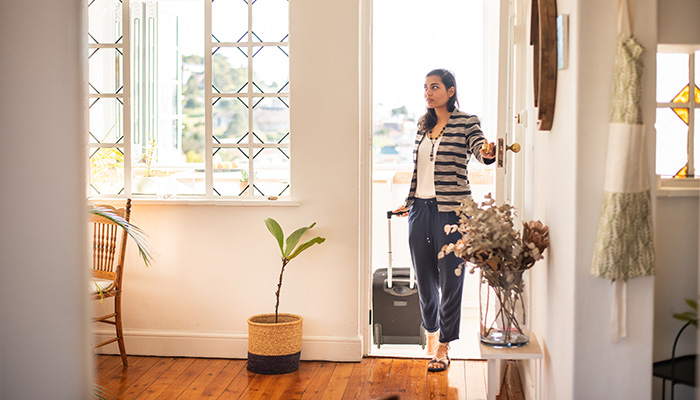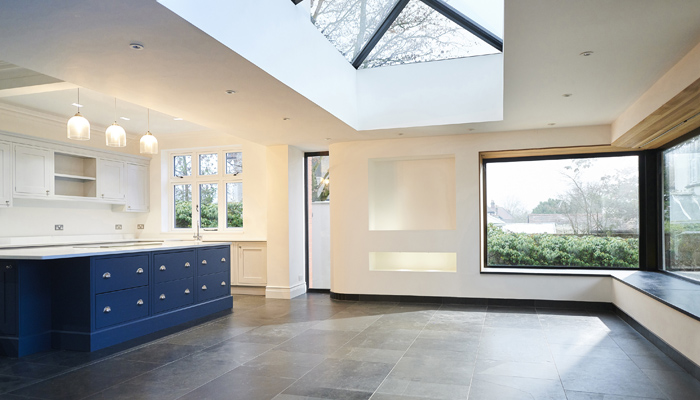What is Classed as a Holiday Home for Insurance Purposes?
Whether you own a holiday home to enjoy the odd weekend away, for sharing with friends or to let out to other holidaymakers, insuring that property is a different story to a standard home. So, what is classed as a holiday home for insurance purposes?
In this helpful guide, we’ll walk you through the classification process, why holiday home insurance is different and how to qualify.
Definition of a holiday home for insurance
Typically, a holiday home is classified as a property that is not your primary residence and is used for leisure, holidays or as a rental for short-term guests. This means that if you use the property solely for personal holidays or rent it out to paying guests on platforms like Airbnb, it may qualify as a holiday home.
Because holiday homes are typically left unoccupied for long periods during off-seasons, the risk of theft, vandalism or unnoticed damage is higher than in occupied properties. This means that holiday home insurance premiums are usually higher than standard home insurance.
How holiday homes differ from second homes
So, what’s the difference between holiday homes and second homes?
Holiday homes
These are usually used for occasional stays by the owner or for renting out on a short-term basis. These properties are often left empty for long periods, making them more vulnerable to risks thus classifying it as a holiday home.
Second homes
These are used more regularly by the owner and tend to be closer to your primary residence so you can spend time in both. If only you use the property, and you don't rent it out, it may be eligible for standard home insurance rather than holiday home insurance.
Criteria insurers use to classify a holiday home
As an insurance provider, we use the following criteria to determine whether a property is a holiday home or not:
Usage
If the property is primarily used for holidays or short stays rather than as a regular second home, it will likely qualify as a holiday home.
Occupancy
If the property is left unoccupied for long periods between visits or rental bookings, it will likely qualify as a holiday home.
Rentals
If the property is rented out on a short-term basis, this brings with it liabilities that differentiate it from a standard home and will make it qualify as a holiday home.
Location
If the property is in a known tourist destination, it might qualify as a holiday home — though this is used less than the other criteria.
Why holiday homes need specialised insurance
Holiday homes require specialised insurance due to unique risks associated with their use. One key reason is how often they are unoccupied — which increases the risk of issues like vandalism, theft or unnoticed damage.
Additionally, since holiday homes often host guests, they need enhanced liability cover beyond standard home insurance. This includes public liability cover to protect against claims if a guest is injured on the property.
What holiday home insurance typically covers
Holiday home insurance covers all sorts of risks, some standard and others unique to holiday homes.
Buildings and contents coverage
This protects the structure of your holiday home and items inside, even during periods when the property is unoccupied. However, guests should insure their own valuables, as the contents cover under a holiday home insurance policy will only cover the property owner’s items.
Public liability insurance
This offers financial protection if a guest is accidentally injured or has their property damaged while at your holiday home, covering potential legal defence claims, where the accident is alleged as your responsibility.
Rental activity cover
This provides specific cover for short-term rentals, including protection against accidental damage caused by guests.
Unoccupied property cover
This ensures that the property remains covered when it’s vacant, such as between rentals or during off-seasons.
When does a property not qualify as a holiday home?
Even if a second property of yours is positioned in a typical holiday spot, there are a few exceptions that might exclude it from holiday home insurance.
Full-time rentals
If your property is occupied full-time by a long-term rental tenant, this would be considered an investment property and would need landlord insurance instead.
Primary residences
If the property is your main residence, it generally won’t be classified as a holiday home. Instead, a standard home insurance policy is more appropriate for primary residences.
Unfurnished or unused properties
Properties that are rarely used, left unfurnished, or not maintained as an active holiday or rental home may require unoccupied property insurance.
How to ensure your property is properly classified
Making sure your property is classified correctly by insurers is essential for you to have the right kind of cover for your holiday home. These are our top tips to make sure it is:
Be clear
Be sure to be completely transparent with your insurance provider about personal use and rental activity. This transparency will help the insurer determine the appropriate classification.
Keep records
If you rent out the property, make sure you maintain records of bookings, rental frequency, and any guest interactions that may impact your insurance needs.
Updates
Regularly update your insurance provider if the way you use the property changes. This might be renting it out more or using it less frequently. It might affect your premium.
Holiday home insurance from Towergate
A holiday home is generally a property used for holidays or short-term rentals. This requires specialised To ensure proper cover, you should always consult your insurer to confirm the classification of your property and discuss appropriate insurance options.
Get a holiday home insurance quote
If you’re considering holiday home insurance, our experts at Towergate can get you a quote that will suit your specific needs. It's quick and easy to get a holiday home insurance quote online or by calling us on 0345 266 8561.
About the author
James Cooper is a respected industry leader with around 10 years' experience in the home and property insurance sector. He works across a broad range of insurance product and policy development and delivery, including product development; customer sales and marketing; and P&L accountability.
Consistent with our policy when giving comment and advice on a non-specific basis, we cannot assume legal responsibility for the accuracy of any particular statement. In the case of specific problems we recommend that professional advice be sought.
Date: May 12, 2025
Category: Home and Property











